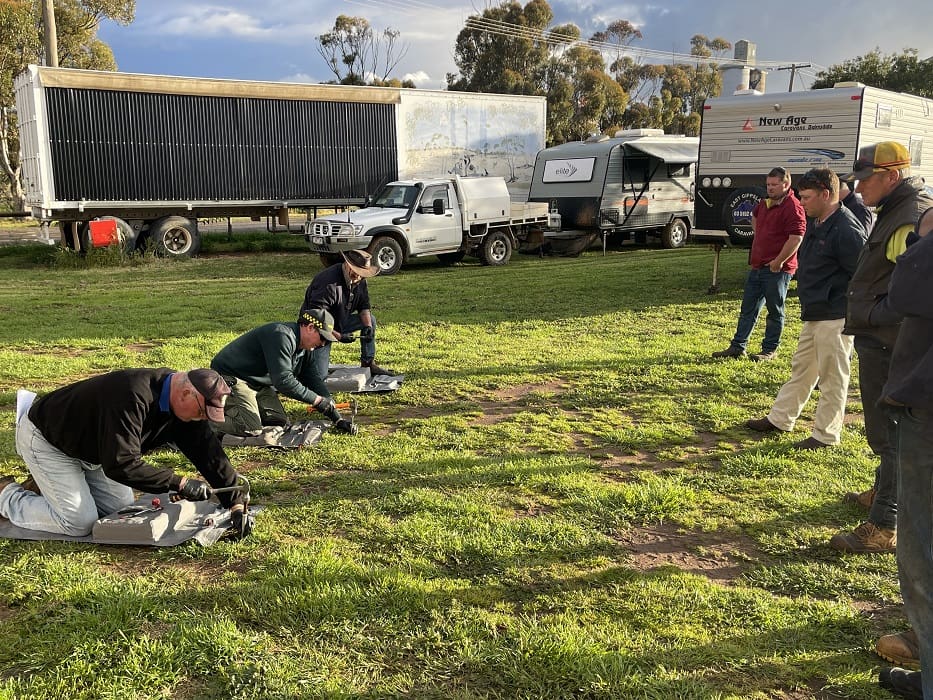
A training day in September with Patchewollock landholders covered collaborative, nil-
tenure best practice control strategies and techniques. Image – DELWP.
MALLEE Landcare Group members are working with government agencies on the first Mallee wild dog baiting program across private and public land in the north-west Victorian region.
Farmers from Patchewollock and Underbool attended a planning meeting to kick start the program by working with the Department of Environment, Land, Water and Planning (DELWP) in laying baits and using bait stations where wild dogs are known to be predating on livestock.
DELWP senior wild dog control officer Mallee Region Mark Scott conducted a training day in September with Patchewollock landholders on collaborative, nil-tenure best practice control strategies and techniques.
He said there had been 43 sheep killed and 15 sheep maimed from wild dog attacks, far less than could have been lost if everyone hadn’t worked together. In addition to the coordinated baiting on private land, three wild dogs have been dispatched by local farmers on their properties.
Mr Scott has two separate bait runs along the Wyperfeld National Park and Patchewollock State Forest boundary each running for six weeks during September to December.
Mallee Landcare Group vice president Alex Hulland said wild dog attacks in the region were rare for the past 20 years until recent times when the feral pests had begun migrating from the Big Desert Wilderness Park and Wyperfeld National Park into the Patchewollock area up to 100km along the park boundary.
Mr Hulland said ewes and lambs had been lost to wild dog predation on seven local farms over the past year.
He said Mallee Landcare Group had provided subsidised manufactured baits as an incentive to landholders to bait in conjunction with the DELWP program.
“In the past we have been reactive to the wild dog attacks but this is the first real proactive control program along a 100km stretch of the affected farms.
“Some farmers are 100 per cent cropping with no stock at all and these wild dogs would be passing through their properties without them knowing,” Mr Hulland said.
“We are encouraging them to bait in strategic locations where wild dogs are known to travel through, where there are tracks and scats and areas where livestock have been attacked in the past.
“Our Landcare group has done rabbit baiting in the past but this is different – I’m still learning the ins and outs of it all,” he said.
“It is the first time the Landcare group has worked in with DELWP to get these wild dogs under control – generally they have their baiting run and we have ours at different times which can lead to a missed opportunity for some dogs.
“Now everyone is having a go at the same time there is a lot better chance of controlling these wild dogs,” Mr Hulland said.
Mark Scott is the first permanent full-time DELWP wild dog controller to be stationed in the Mallee, covering the 744,851ha Big Desert and Wyperfeld National Park, and is actively encouraging co-ordinated nil-tenure baiting programs across public and private land.
Mr Scott is using data captured by remote sensing cameras to educate landholders to not just bait along boundary fences but also strategically place them around watering points, along tree lines and further inside paddocks.
To watch a video on Victoria’s wild dog community program click here.

HAVE YOUR SAY